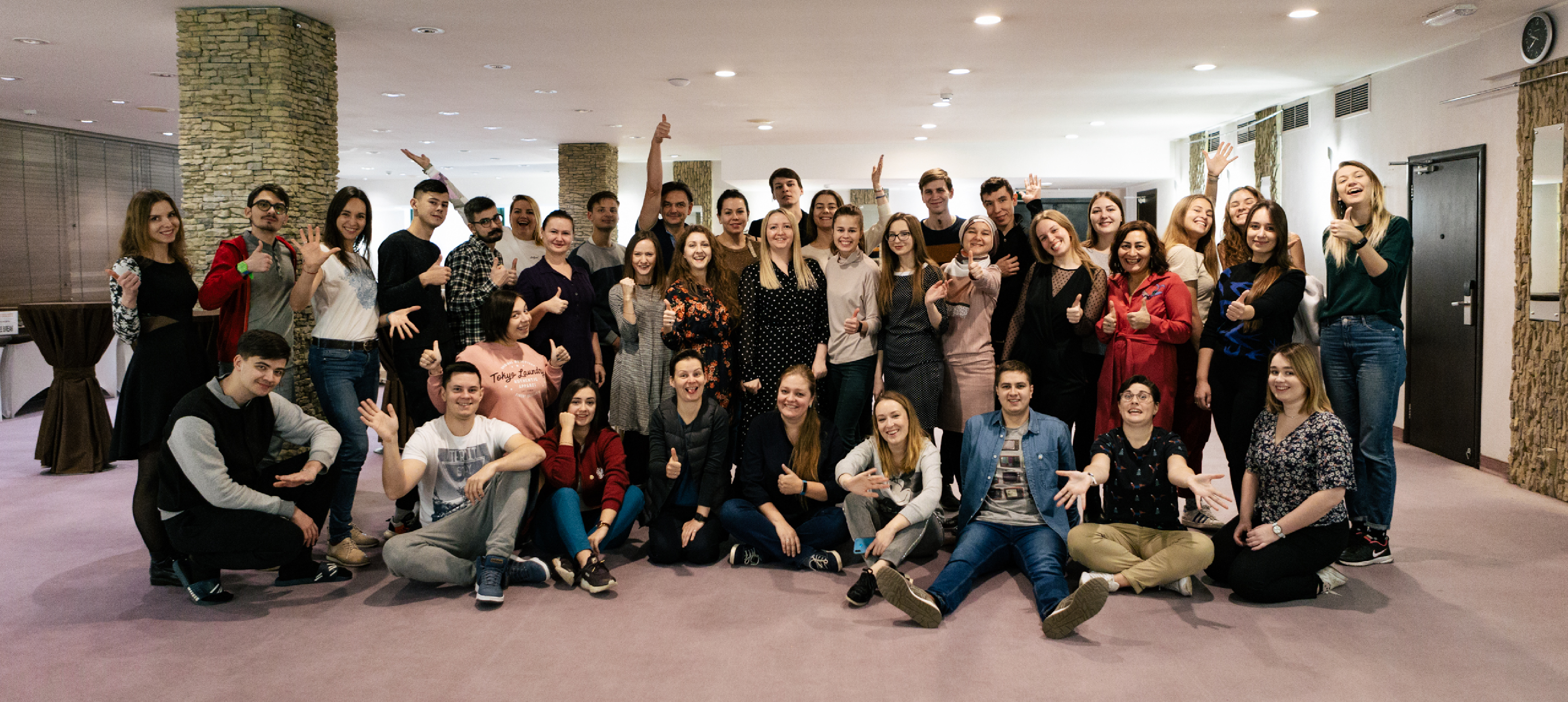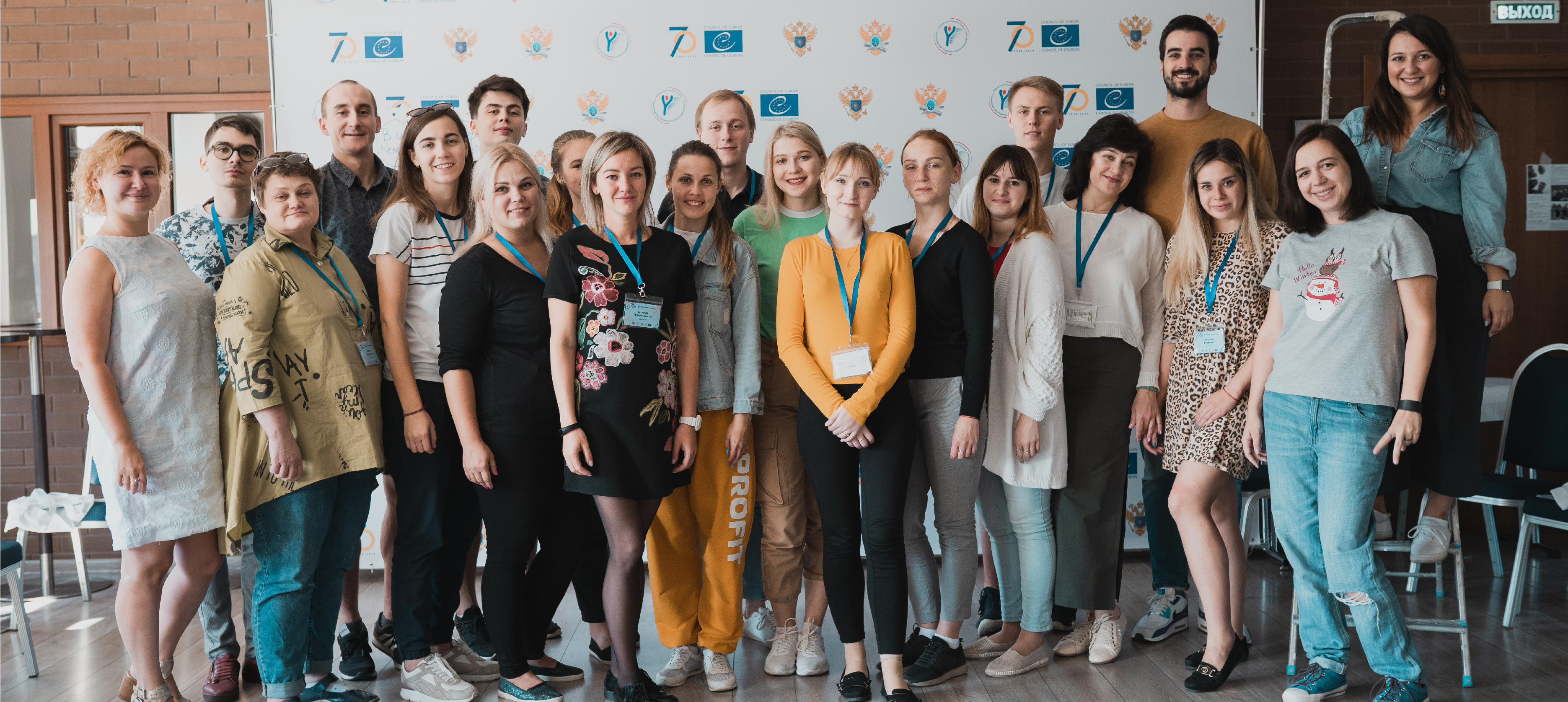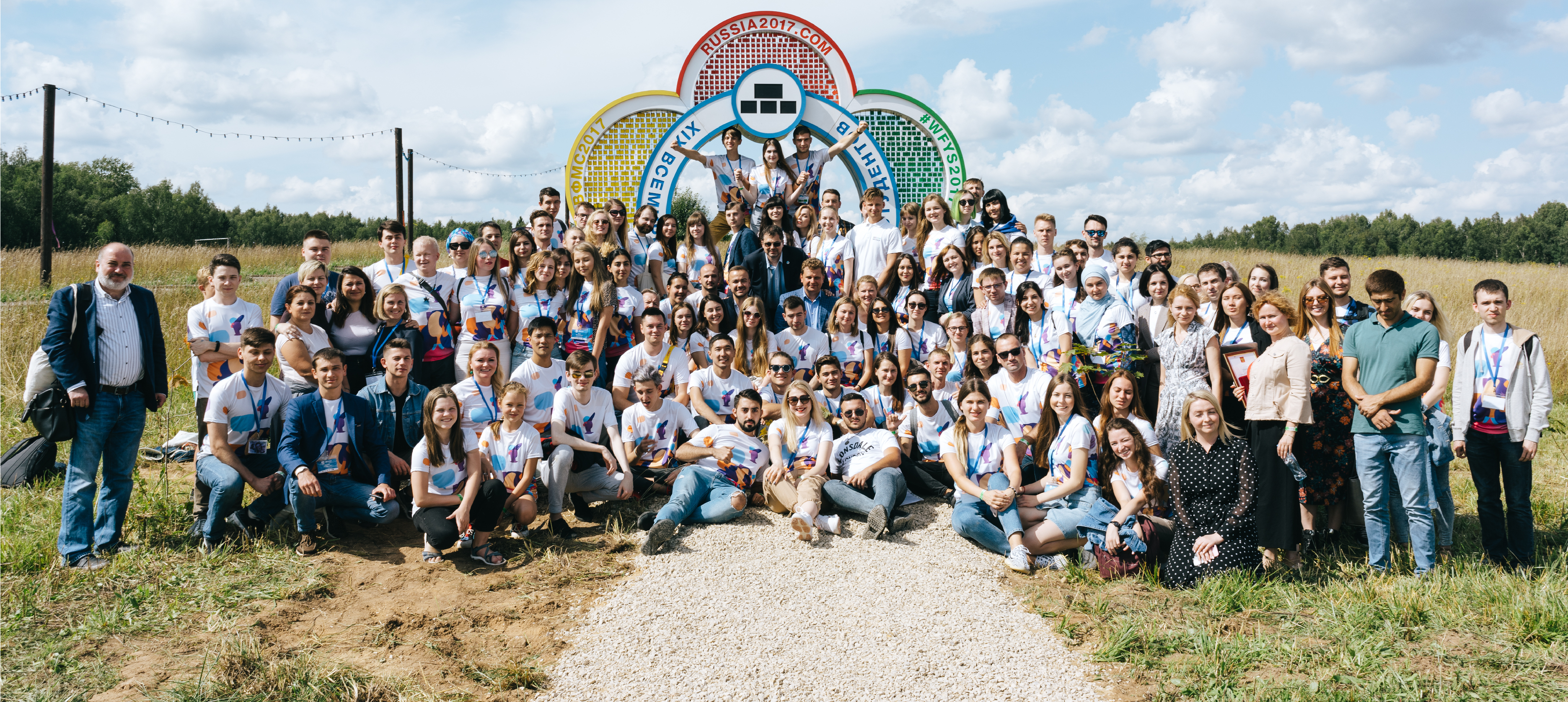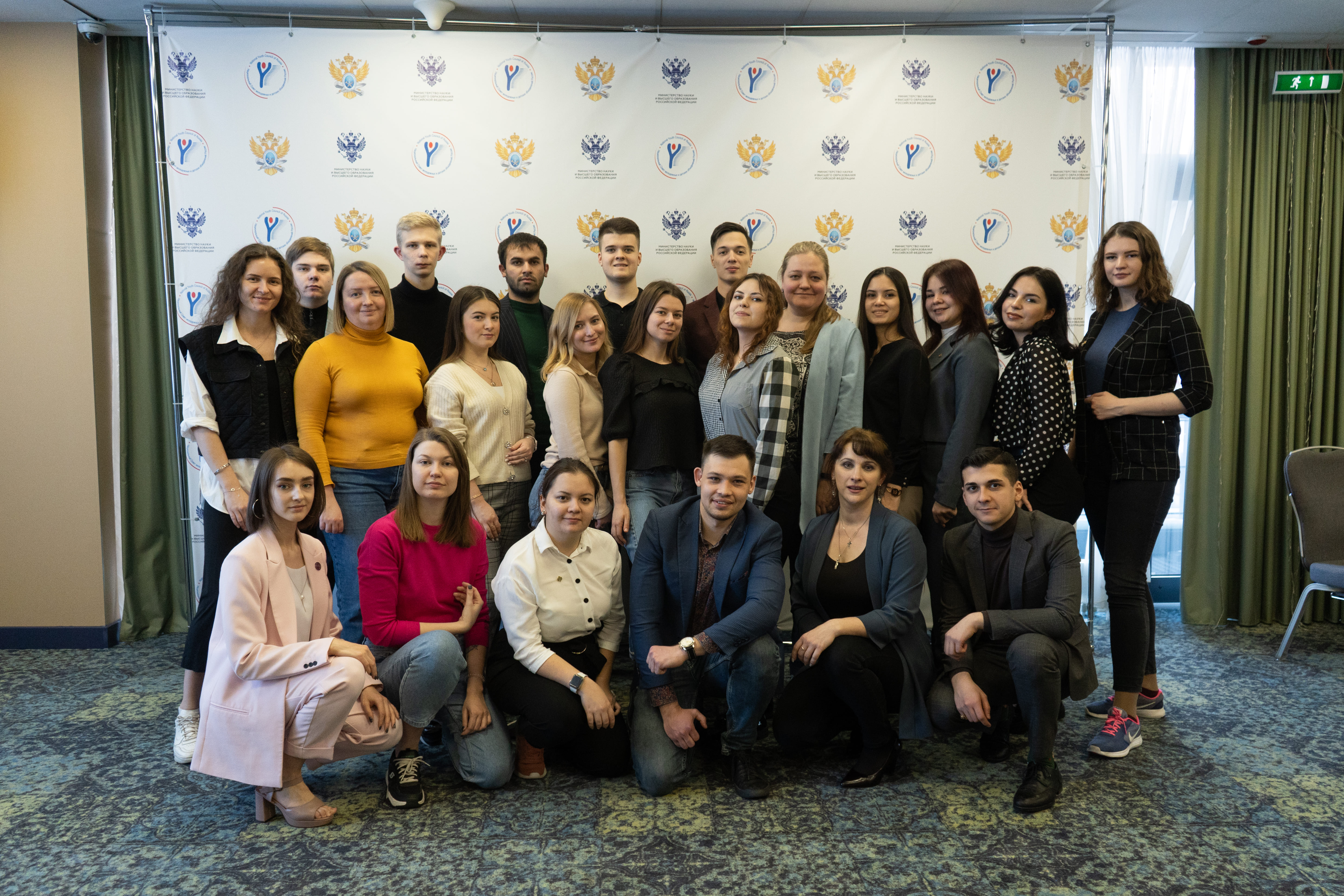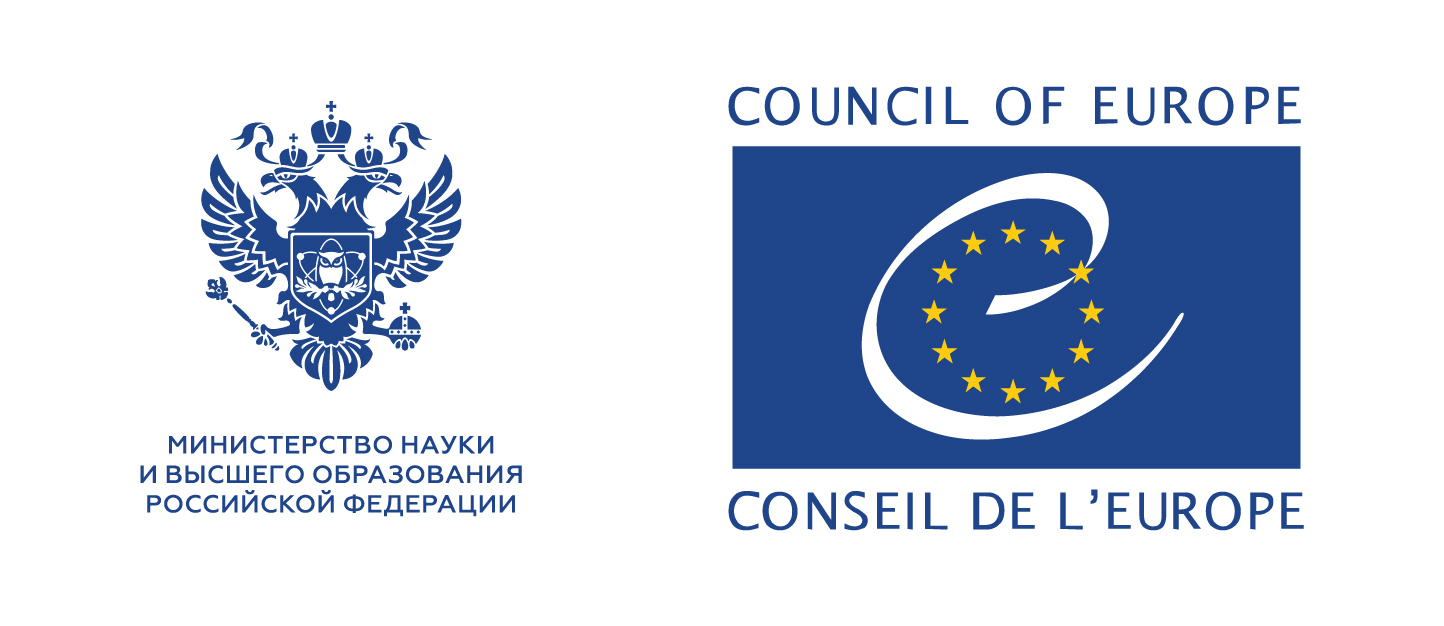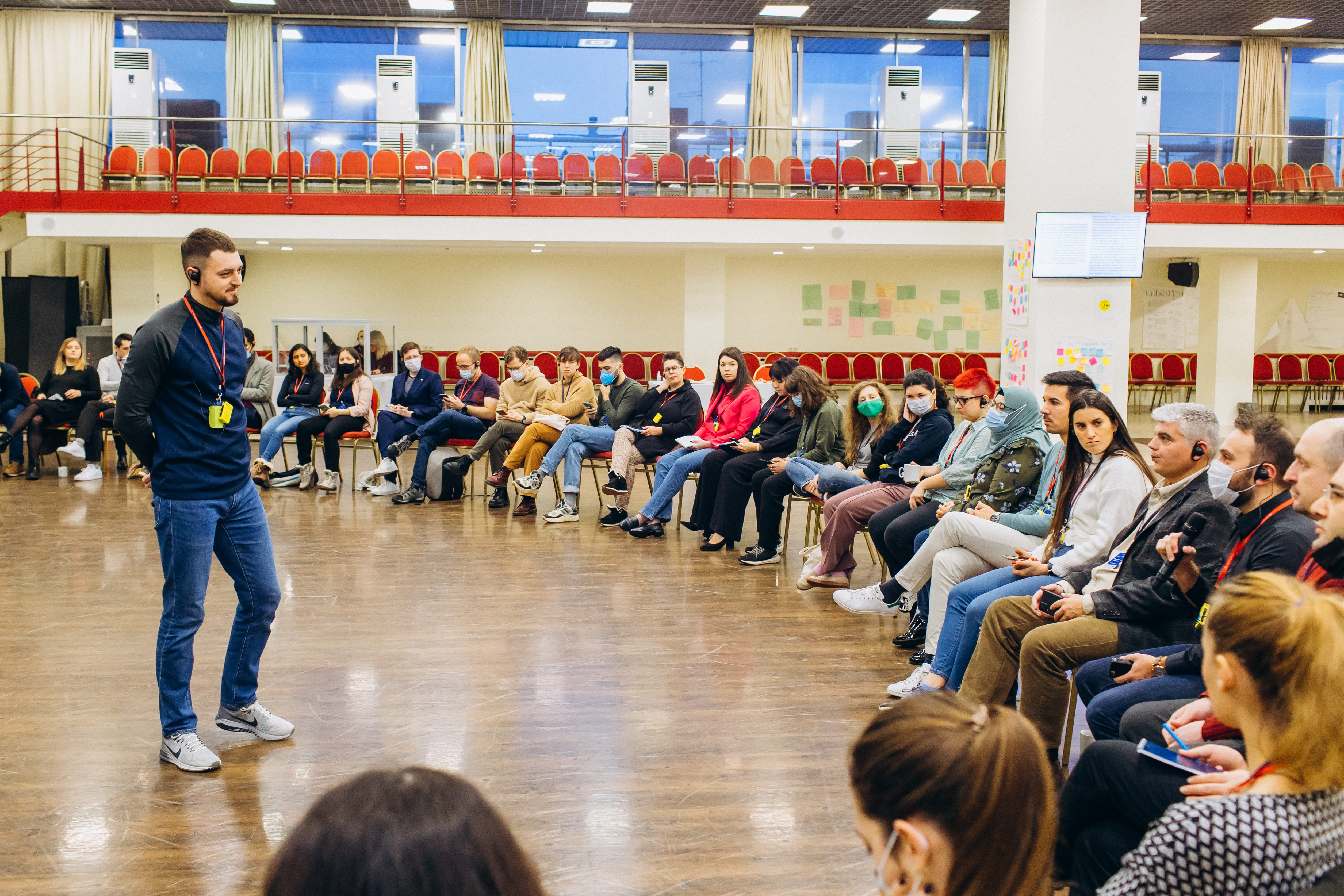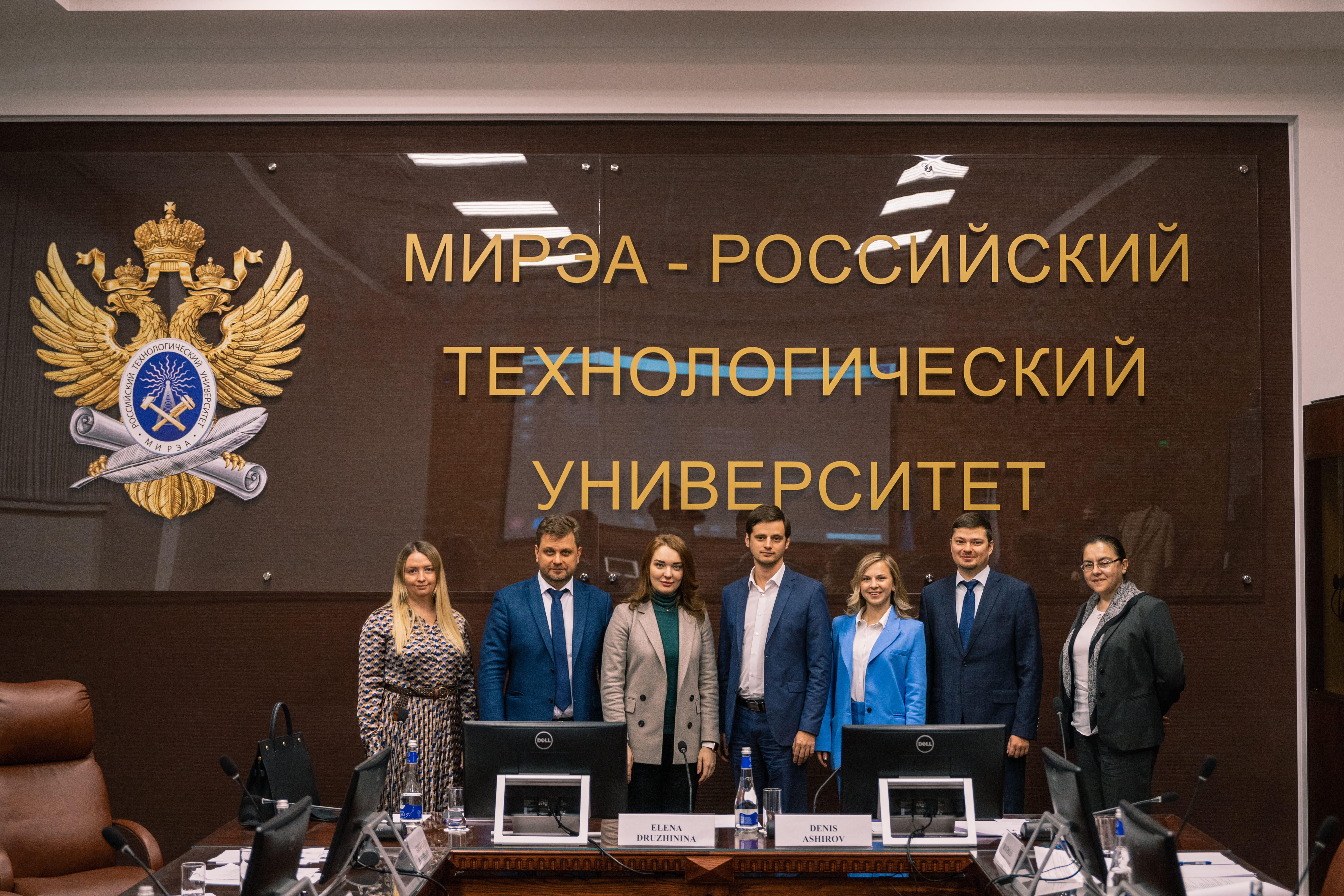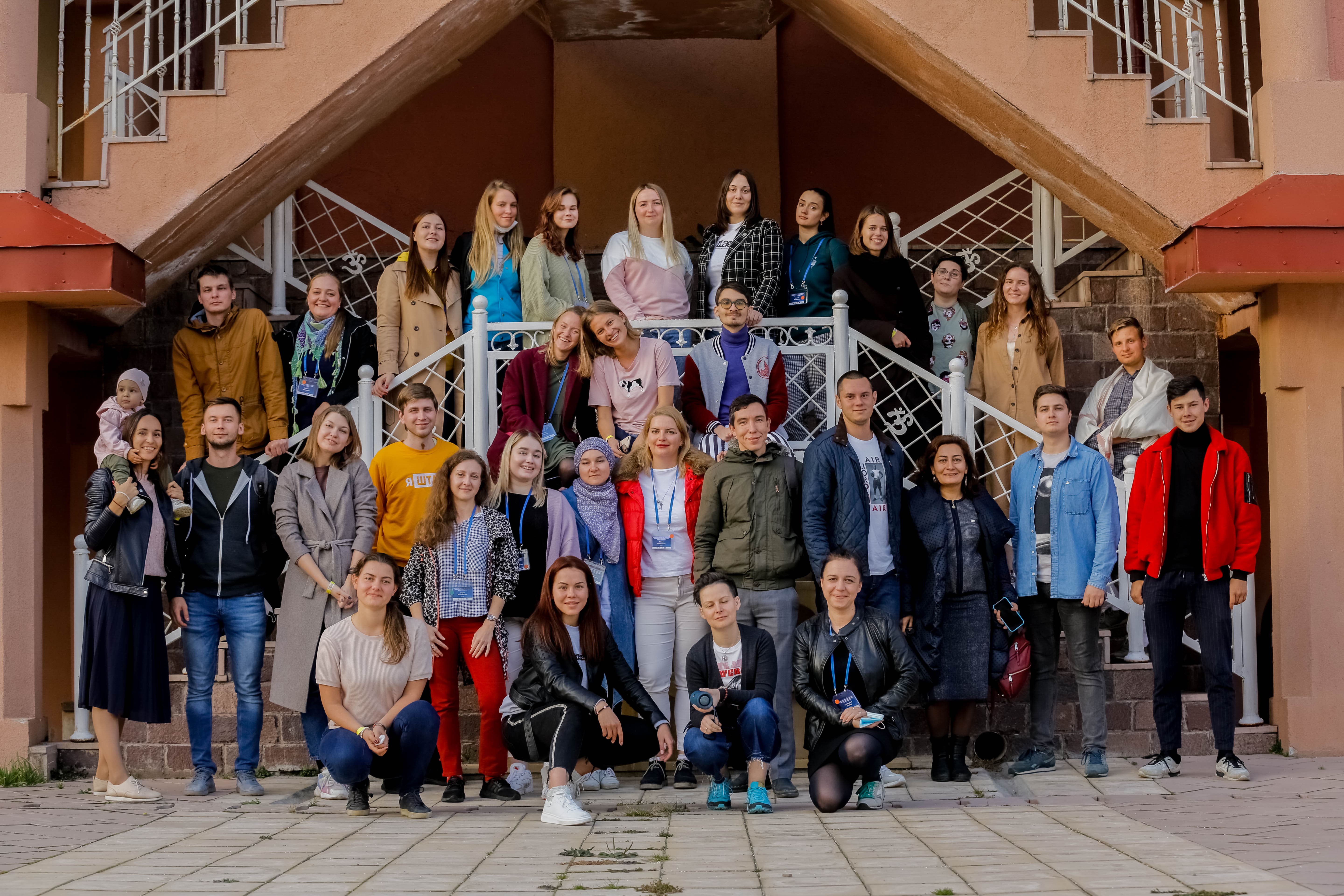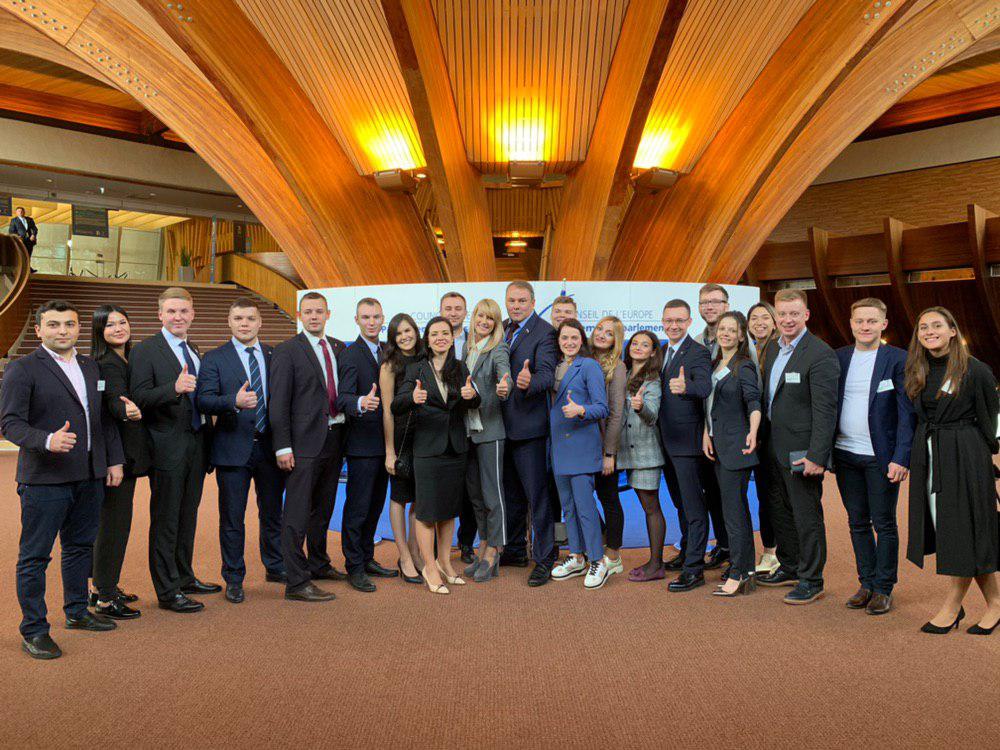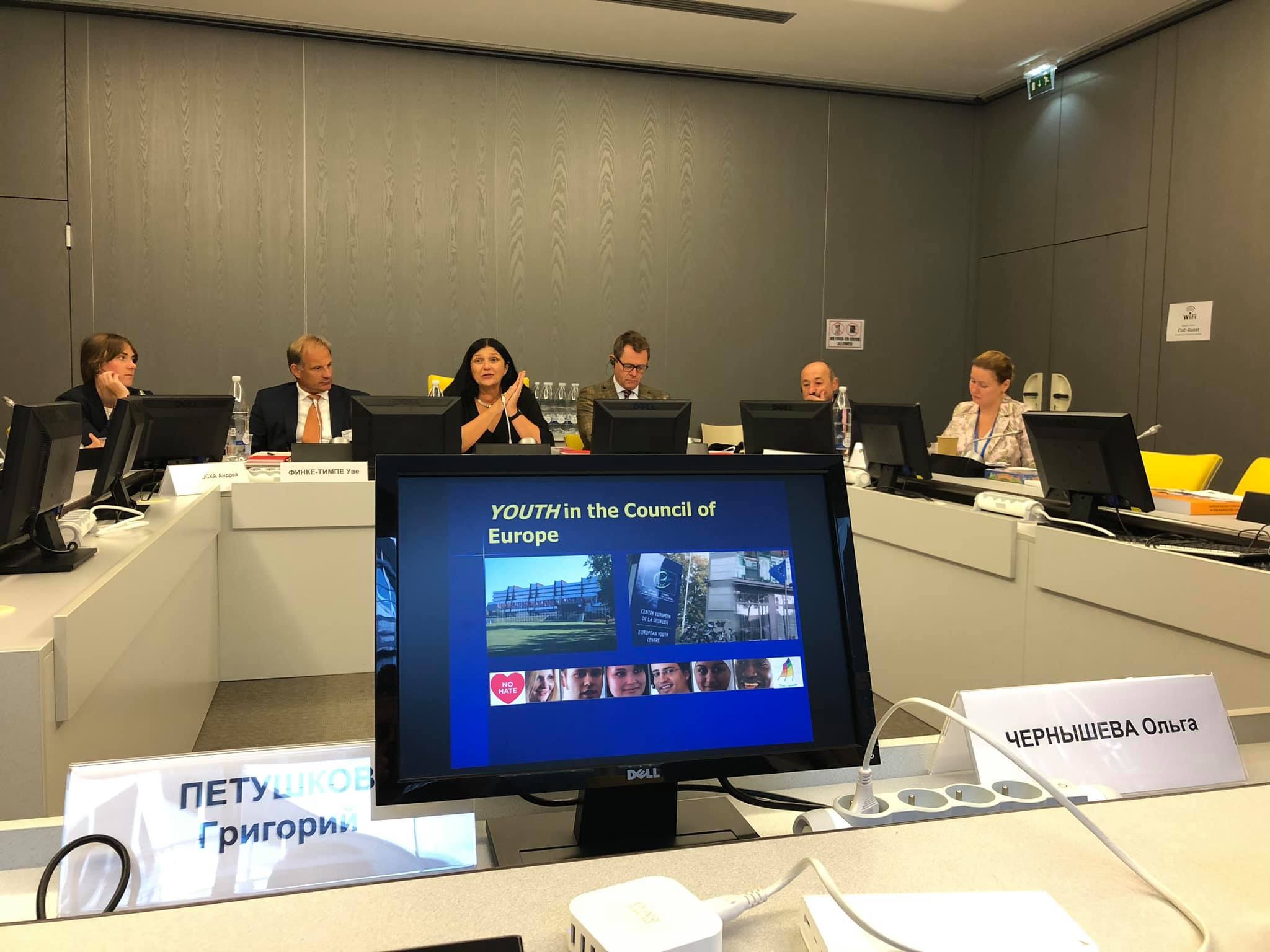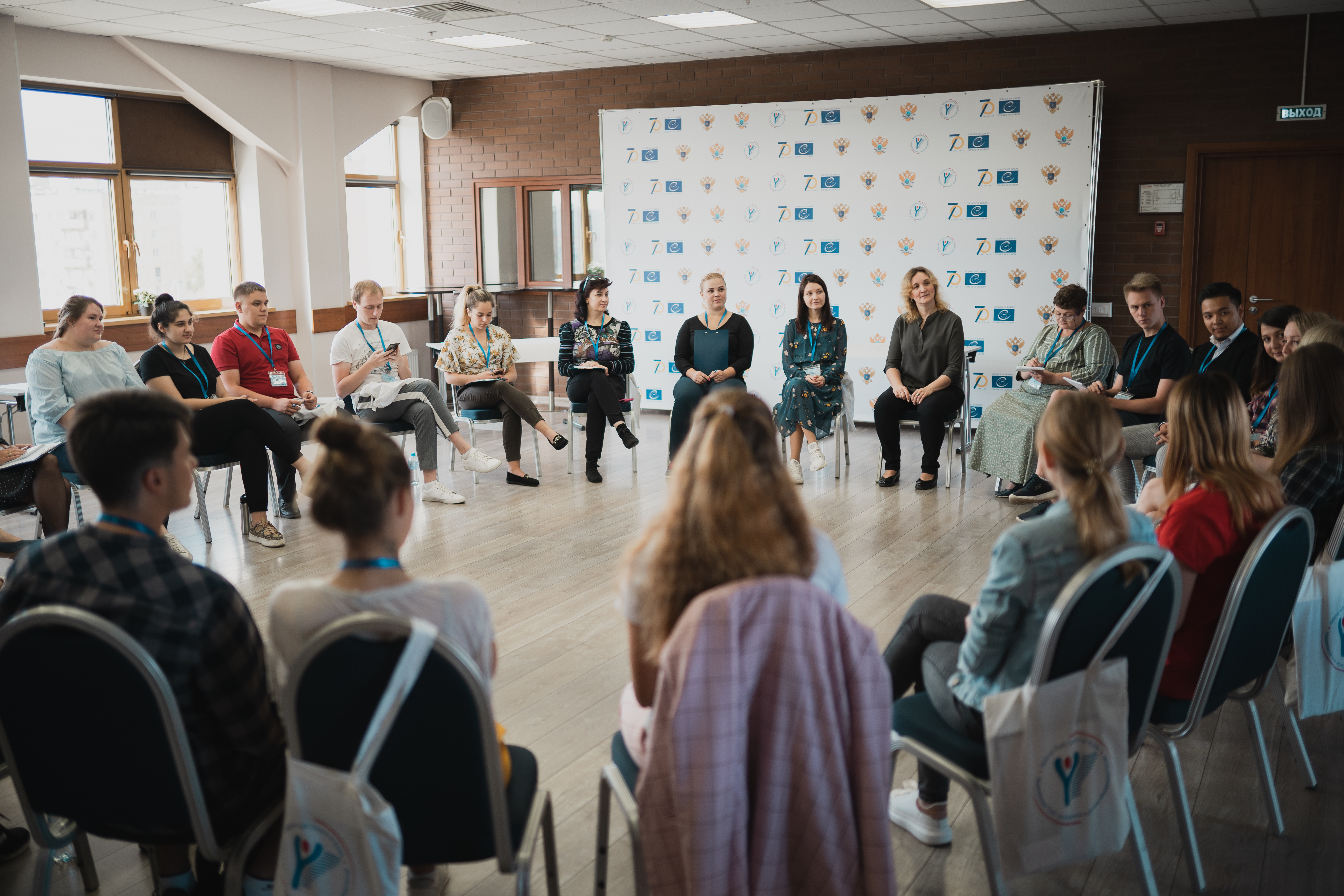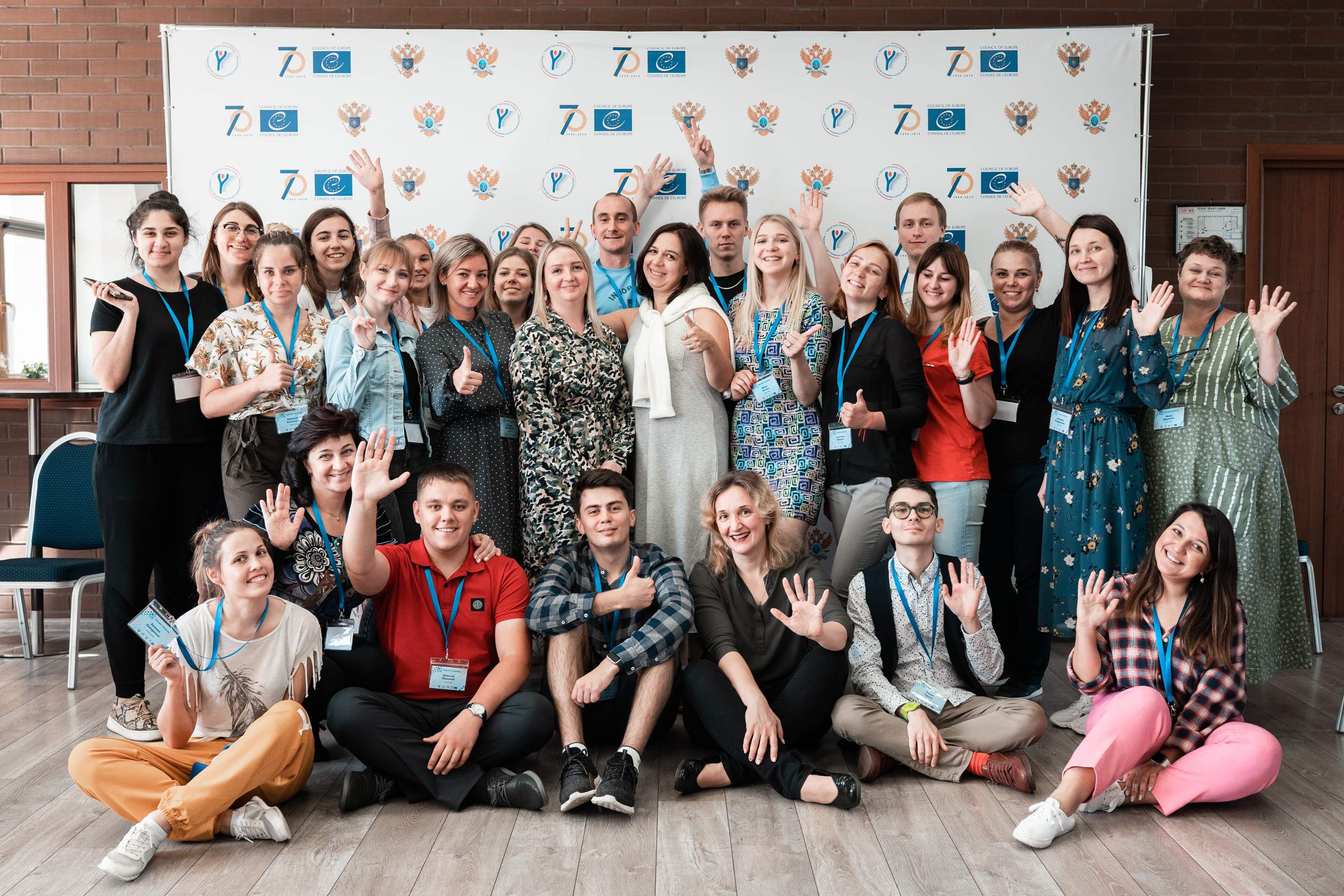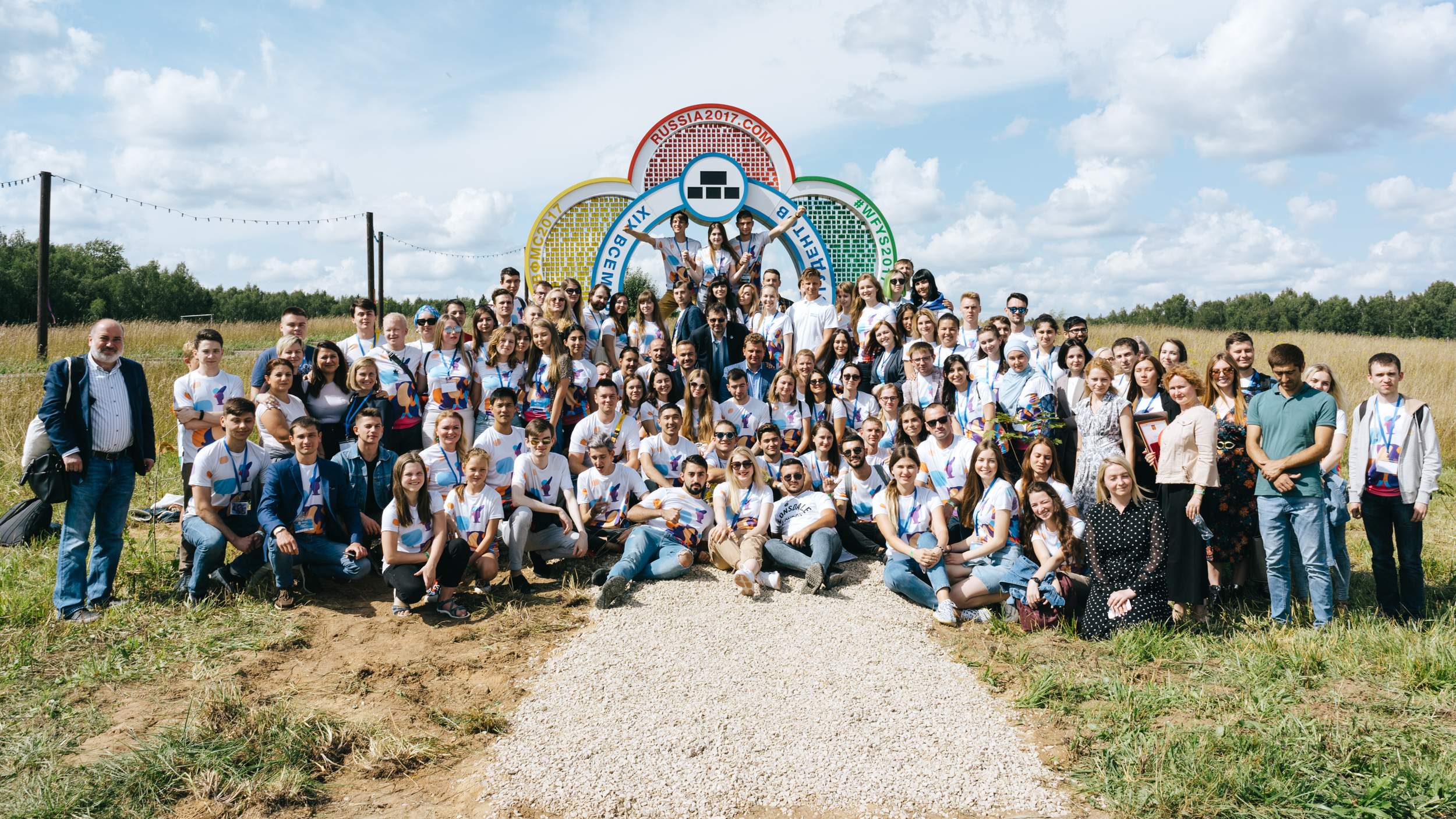The Council of Europe (CoE) is an international organization established on May 5, 1949. The headquarters of the Council of Europe is located in Strasbourg (France)*.
In accordance with the Statute of the organization, the goal of the Council of Europe is to achieve greater unity among its Members in order to protect and implement the ideals and principles that are their common heritage and to promote their economic and social progress.
The main task of the Council of Europe is the protection of human rights, democracy and the rule of law in all spheres. In accordance with the Declaration of the 3rd Summit of Heads of State and Government of the Council of Europe (2005, Warsaw), the tasks of the organization were updated and expanded.
Currently the Council of Europe unites 46 states: Austria, Azerbaijan, Albania, Andorra, Armenia, Belgium, Bulgaria, Bosnia and Herzegovina, Hungary, Germany, Greece, Georgia, Denmark, Ireland, Iceland, Spain, Italy, Cyprus, Latvia, Lithuania, Liechtenstein, Luxembourg, Malta, Monaco, Netherlands, Norway, Poland, Portugal, Moldova, Romania, San Marino, North Macedonia, Serbia, Slovakia, Slovenia, UK, Turkey, Ukraine, Finland, France, Croatia, Montenegro, the Czech Republic, Switzerland, Sweden, Estonia.
The Russian Federation was a Member of the Council of Europe from February 28, 1996 until March 15, 2022, when it decided to withdraw from the Council of Europe (statement by the Ministry of Foreign Affairs of the Russian Federation).
The main structures ensuring cooperation between the CE Member States are the Committee of Ministers, the Parliamentary Assembly, the Congress of Local and Regional Authorities, the Conference of International Non-Governmental Organizations of the CE and the European Court of Human Rights.
The main goal of the Council of Europe in the field of youth work is to develop a common European policy aimed at participating of young people in public life, instilling in them a sense of citizenship, providing opportunities for education and employment.
The main documents of the CE concerning youth:
- European Charter on the Participation of Young People in the Life of Municipalities and Regional Entities of May 5, 1949,
- Revised European Charter on the Participation of Young People in Local and Regional Life (21 May 2003),
- Resolution CM/Res(2008)23 on the youth policy of the Council of Europe of 25 November 2008,
- Recommendation Rec(2003)8 of the Committee of Ministers to Member States on the promotion and recognition of non-formal education for young people,
- Recommendation CM/Rec(2015)3 of the Committee of Ministers of the Council of Europe to Member States on the access of young people from disadvantaged neighborhoods to social rights,
- Recommendation CM/Rec(2016)7 of the Committee of Ministers of the Council of Europe to Member States on young people's access to rights,
- Recommendation of the Parliamentary Assembly of the Council of Europe 1978(2011) Towards a European Framework Convention on the Rights of Youth,
- Recommendation of the Parliamentary Assembly of the Council of Europe 2015 (2013) "On youth access to fundamental rights",
- Declaration of the 8th Conference of Ministers Responsible for Youth Policy in the Member States of the Council of Europe "The Future of Council of Europe Youth Policy: Agenda 2020" (October 11, 2008, Kiev),
- Report of the Congress of Local and Regional Authorities of the Council of Europe (2012) Youth and Democracy: The Changing Face of Youth Political Engagement,
- Consolidated report of international reviews of national youth policy in the Member States of the Council of Europe for 1997-2001 "Support for youth in Europe: principles, policies and practices",
- Resolution CM/Res(2020)2 on the Strategy of the Youth Department of the
Council of Europe until 2030 (adopted by the Committee of Ministers of the Council of Europe on January 22, 2020).
Since 1972 the Youth Department of the Council of Europe has been operating, the most important method of work of which since the 1980s has been the system of joint management is a unique example of interaction between state and public structures and the involvement of young people in the decision-making process. The key institutions and instruments for the implementation of youth policy in the Council of Europe are:
- Joint Council on Youth (consisting of the European Youth Steering Committee and the Youth Advisory Council),
- Youth Program Committee,
- Conference of Ministers responsible for the implementation of youth policy,
- European Youth Centers of the Council of Europe (Strasbourg and Budapest),
- European Youth Foundation.
The Joint Council on Youth decides on the programs and funding (budgeting) of youth sector of the Council of Europe and the European Youth Foundation.
The European Steering Committee for Youth brings together representatives of departments responsible for youth work from the 50 Member States of the European Cultural Convention. The Committee exercises control over the implementation of the Council of Europe program "Youth for Democracy", advises the Committee of Ministers of the Council of Europe on all issues related to youth, initiates the holding of conferences of ministers responsible for the implementation of youth policy, develops youth policies and standards to address the challenges faced by young people in Europe and guarantee youth participation and young people's access to rights.
The Advisory Council on Youth brings together 30 representatives of youth non-governmental organizations in Europe. The Council gives its recommendations and opinions on various issues of youth policy to the Steering Committee and also ensures that young people are involved in all processes related to the work of youth sector of the Council of Europe.
The Programming Committee on Youth is a subsidiary body of the Joint Council composed of 8 representatives of the European Steering Committee and the Advisory Council on Youth. It approves, supervises and evaluates the programs of the European Youth Centers and the European Youth Foundation.
Conferences of ministers responsible for implementing youth policy are held every three years and are an important tool for intergovernmental cooperation. They provide the opportunity for ministers to meet and discuss topical issues of youth policy and develop guidelines for the work of the Council of Europe. The first conference took place in 1985 in Strasbourg. The conferences are attended by ministers from 50 signatories of the European Cultural Convention. Before each conference a youth event is organized, there representatives of youth NGOs and youth representatives take part and participate in the conference as part of national delegations. The results of the youth event are presented at the opening of the ministerial conference. The final declaration adopted at the end of the conference is submitted to the Committee of Ministers of the Council of Europe.
The European Youth Centers of the Council of Europe (Strasbourg and Budapest) are international training and meeting centers where most of the activities of the CE youth sector take place.
The European Youth Foundation provides financial support for activities carried out by non-governmental youth organizations (including support for training, research, production of materials and documentation) and in line with the values and work of the Council of Europe.
Cooperation between the Russian Federation and the Council of Europe in the field of youth policy has been carried out since 1992 first in the form of separate joint events (seminars, trainings, camps), and since 2006 at the Framework Program for Cooperation between the Ministry of Science and Higher Education of the Russian Federation and the Council of Europe in the field of youth policy and annual Action Plans aimed at promoting the development of youth policy in the Russian Federation, raising the professional level of youth workers, strengthening interaction between state structures and public organizations, participating of the Russian Federation in the activities of youth sector of the Council of Europe (four programs were approved in total - for 2006– 2008, 2008-2013, 2014-2018 and 2020-2023).
In order to develop and monitor the implementation of the Action Plans, a Steering Committee was formed. From the Russian side there were representatives from the Ministry of Science and Higher Education of the Russian Federation, the Ministry of Foreign Affairs of the Russian Federation, the Federal Agency for Youth Affairs and the National Youth Council of Russia.
In 2012 Russia hosted the 9th Conference of Ministers for Youth Affairs of the Council of Europe Member States on the topic "Young people's access to rights: the development of innovative youth policies" (September 24-25, 2012, St. Petersburg).
The Framework program for cooperation between the Ministry of Science and Higher Education of the Russian Federation and the Council of Europe in the field of youth policy for 2020–2023 provided for the following areas:
- development and active support of high-quality youth work in the framework of the implementation of youth policy at the federal, regional and local levels,
- development of training activities and development of competencies of youth workers and youth leaders,
- development of interaction between representatives of youth non-governmental organizations and authorities responsible for the implementation of youth policy at the federal, regional and local levels,
- familiarization of young people with the possibilities of obtaining education in the field of human rights in accordance with generally recognized international standards as well as the approaches of the Council of Europe in the youth field,
- promoting the formation and development of an active civic position among young people and increasing the level of youth participation in the processes of making socially significant decisions,
- promoting education and awareness raising to enable young people to access rights and take responsibility,
- development of intercultural dialogue including its religious dimension, interethnic unity and social cohesion of youth in society,
- improving the quality of events held in the youth field,
- support for youth projects aimed at studying and promoting among youth of Europe the Russian language and other European languages in the Russian Federation,
- convergence of approaches to activities for the preservation of historical memory carried out with young people,
- empowering youth leaders and activists from the Russian Federation to participate in multilateral events and key events in youth sector of the Council of Europe,
- increasing the effectiveness of parties in jointly responding to current and future challenges and issues related to the lives of young people in Europe,
- studying the standards and information and methodological materials of youth sector of the Council of Europe for interested structures and departments responsible for the implementation of youth policy and youth organizations in Russia as well as the activities and opportunities of the European Youth Foundation.
The main events and projects implemented within the framework of cooperation between the Russian Federation and the Council of Europe in the field of youth policy are International Youth Camp "Dialogue" (2009-2021), International training seminar for youth on the preservation of historical memory "Memory and lessons of the Second World War" (2014-2021), Training seminar "50/50" for youth workers from authorities and public organizations (2006-2021), International expert seminar on youth policy and youth work in the Russian Federation and other signatory states of the European Cultural conventions (since 2013 biennially until Russia's withdrawal from the Council of Europe), Seminar on democratic youth participation for leaders of youth organizations, members of youth parliaments and governments (from 2010 until Russia's withdrawal from the Council of Europe), Long-term training course for trainers of non-formal education in the field of youth work. (Since 2014 with a frequency of once every three to four years until Russia's withdrawal from the Council of Europe).
Since 2022 the International Youth Camp "Dialogue", the International Training Seminar for Youth on the Preservation of Historical Memory "Memory and Lessons of the Second World War", the Training Seminar "50/50" for youth workers from authorities and public organizations are held as part of the implementation of the Action Plan for the implementation of the Strategy for International Youth Cooperation of the CIS Member States for the period up to 2030.
On March 15, 2022 the Framework Program for Cooperation between the Ministry of Science and Higher Education of the Russian Federation and the Council of Europe in the field of youth policy was terminated due to the decision of the Russian Federation to withdraw from the Council of Europe.
*Source: materials of the official website of the Council of Europe and the collection: International Youth Cooperation / V. Dubravina, V. Olinchuk, M. Osipova, O. Popova, A. Simonovskaya, D. Sokolova, V. Torotenkova. - M.: MIREA – Russian Technological University, the National Youth Council of Russia, 2020.








